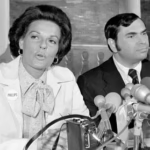There is constant speculation about whether Donald Trump will carry out his promises of trade tariffs in the days leading up to his second inauguration. Yes, the Republican campaigned on the topic before winning reelection. Indeed, he has displayed a great deal of bluster. However, others still contend that Trump might decide against implementing a foolish proposal that will harm the economy when the chips are down.
In light of this, the president-elect used his social media platform to make a type of announcement:
We have been utilizing the Internal Revenue Service (IRS) to tax our Great People for far too long. While taxing ourselves, the American economy has brought development and wealth to the world through embarrassingly weak and soft trade accords. That needs to change now. In order to collect our tariffs, duties, and all revenue originating from outside sources, I am announcing today that I will establish an external revenue service. We will start charging those who profit from Trade, and they will finally start paying their rightful share. On January 20, 2025, the External Revenue Service will be born.
It is important to acknowledge the adage “watch what they do, not what they say” before getting into this. According to several stories from the past day, Trump is establishing a new bureaucracy to function in tandem with the IRS, using his online letter as evidence. The problem is that there is no way to know if the Republican will truly attempt to establish a “External Revenue Service” or if this will soon be added to the long list of ideas about which he appears momentarily enthusiastic but never again.
Let us assume, however, that Trump was sincere about his most recent proposal for the purposes of discussion. Assume that the next GOP administration will indeed create a new layer of bureaucracy that will concentrate on.
What’s wrong with this? Quite a bit, actually.
For one thing, the idea of an “External Revenue Service” appears to be a clumsy attempt at political packaging: The president-elect has long struggled to understand the basics of trade policy, and he apparently continues to believe that tariffs will generate vast wealth that will pour into the government’s coffers.
He should be aware by now that Trump’s proposals will result in higher prices for American customers rather than foreigners.
Even if we ignore this, however, there is still a more obvious issue: Trump is intent on establishing a completely unneeded new bureaucracy, given that the US already has an agency in charge of collecting foreign taxes. Since U.S. Customs and Border Protection currently performs the functions of the “External Revenue Service,” the president-elect has most likely heard of it.
The president and Congress determine tariff policy, which is currently administered by U.S. Customs and Border Protection. Importers self-classify and declare the value of their goods, and CBP officials review and audit that paperwork before collecting any duties, penalties and fees, according to the Congressional Research Service. Those funds are deposited into the U.S. General Fund, run by the Treasury Department. The government collected about $80 billion in tariffs and duties in 2023, according to a White House estimate.
Does Trump know this? Did he give this a moment’s thought before making the announcement? Did it occur to him that maybe he could ask someone who actually knows something about the issue?















